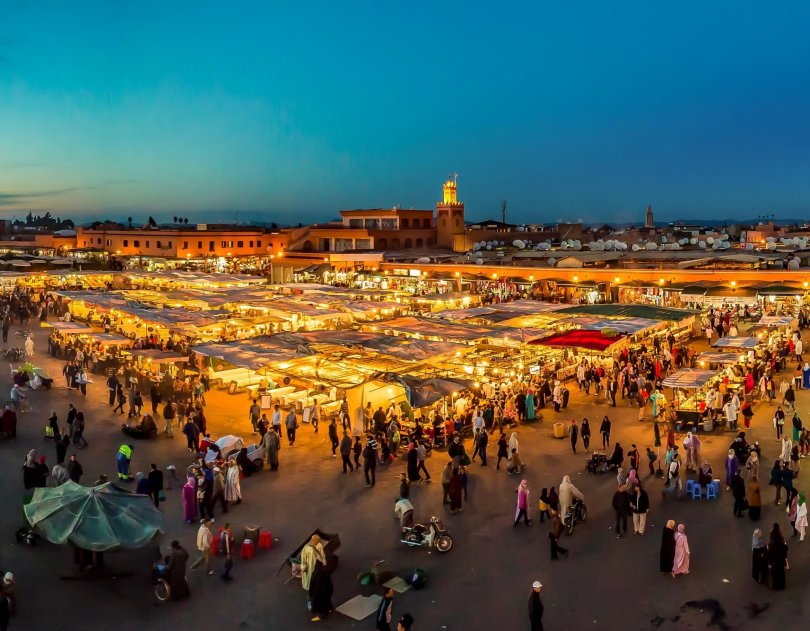
Morocco
The European Training Foundation (ETF) cooperates with and complements the work of the European Commission and the European External Action Service in supporting Morocco, including providing assistance to the Delegation of the European Union to Morocco.
Morocco is actively involved in the Torino Process whose sixth edition was launched in Rabat in March 2023. This participatory analysis of education and training systems and policies contributes to the country’s policy development and to the programming cycle of the European Union and other donors in terms of skills and human capital development.
Several Moroccan vocational centres have joined the ETF Network for Excellence. Morocco is also a member of the ETF Quality Assurance Forum.
The ETF supports the EU Delegation in implementing the PIAFE programme (Programme intégré d’appui à la formation et à l’éducation), providing expertise in the area of qualifications – to make qualifications more relevant, readable and understandable for Moroccan employers and citizens and easier to compare across Europe, Africa and beyond to support international mobility and labour migration. Further steps: implement the National Qualifications Framework, and link it to the African Continental Qualifications Framework and the European Qualifications Framework to support lifelong learning.
In addition, the ETF provides policy advice on the skills dimension of the migration policy by supporting the European Commission and the EU Delegation in implementing the next THAMM programme (Towards a Holistic Approach to Labour Migration Governance and Labour Mobility in North Africa) and Talent Partnerships.
Read our 2024 update on Key policy developments in education, training and employment (ETF, 2024). For a quick overview, see below.
2024 developments at a glance
🏛️ Economic landscape: As the first country in the region to gain EU 'advanced status', Morocco continues to strengthen its role as a key economic and financial bridge between Europe and Africa. It has deepened ties with regional partners and, despite challenging conditions, has shown strong resilience, with growth driven largely by the agriculture, industry and tourism sectors;
🎓 Education strategy and reform: The Strategic Vision for Reform 2015–2030 and the 2022–2026 Roadmap aim to create a more inclusive and equitable education system by fostering a modern, participatory approach to public education. This vision is exemplified by initiatives such as the Pioneer Schools project, implemented in 2023-2024. Enrolment rates in pre-school and secondary school have increased, and early drop-out rates, although still high, are decreasing (down from 334,664 in 2021/22 to 294,458 in 2022/23). This has been helped by career guidance, second-chance schools, and financial support for families;
🏫 Vocational education and training (VET): To boost youth employability, the government launched Cities of Trades and Skills (Cités des Métiers et des Compétences - CMCs) in all 12 regions—modern innovative vocational training centres developed in partnership with local businesses and public bodies. The network expanded from three centres in 2023 to seven in 2024, with five more underway. As part of the National Vocational Training Strategy 2021, this initiative supports a more coordinated approach to skills development, governance and resource efficiency. Other actions – such as a labour market observatory, improved curriculum planning, and stronger public-private partnerships – aim to build on the strong 2019 outcome, where 69.8% of VET graduates found employment within nine months of completing their training;
✅ Qualifications and recognition: Morocco’s National Qualifications Framework (NQF), though still in its early implementation phase, plays a crucial role in developing lifelong learning and in enhancing labour mobility both domestically and internationally. Positive strides have been made in applying the validation of prior learning (VPL) within a lifelong learning framework. In 2024, further progress was achieved in the craft sector, with four new regional agreements signed between the government and regional chambers of crafts to expand the formal recognition of informal skills and practical experience;
💼 Labour market challenges: Morocco’s labour market faces persistent inequalities in inclusion and job quality. Female participation remains low at 19% compared to 69% for men. Youth unemployment is high at 35.8%, rising to 47.5% for young women. Graduate unemployment stands at 25.9%, reflecting a mismatch between education and labour market needs. To address these issues, the new Road Map for Employment 2025 aims to improve access to jobs for women and vulnerable groups. It also prioritises the expansion of apprenticeship opportunities, helping young people gain practical, in-demand skills. Small and medium-sized enterprises (SMEs) are identified as key engines of job creation and are central to the roadmap’s strategy.
👦 👧 Youth in focus: The NEET rate among 15–24-year-olds in Morocco has remained stable at around 1.5 million, although young women are disproportionately affected, accounting for 72.8%. Rural areas are particularly impacted, highlighting the urgent need for targeted interventions to enhance employability and support the transition of young people—especially women—into the workforce.
💻 Digital skills development: The new Digital Morocco 2030 strategy, currently under adoption, aims to make digital technology a driver of socio-economic development and to enhance digital inclusion across society. A key focus is raising ICT skill levels and addressing gaps in digital literacy, which remains low despite 84.1% internet penetration (2022). The National Agency for the Promotion of Employment and Skills (ANAPEC) has launched its own digital strategy to expand outreach, especially among young and vulnerable users, while the Moroccan Education and Research Network (MARWAN) is working to connect all Moroccan universities and educational institutions, strengthening the national digital education infrastructure.
Priorities for 2025
👉 Implementation of the new employment roadmap 2025 that addresses both the supply and demand of skills
👉 Skills needs intelligence and strengthening labour market observatory functions
👉 Increasing the quality and relevance of VET
